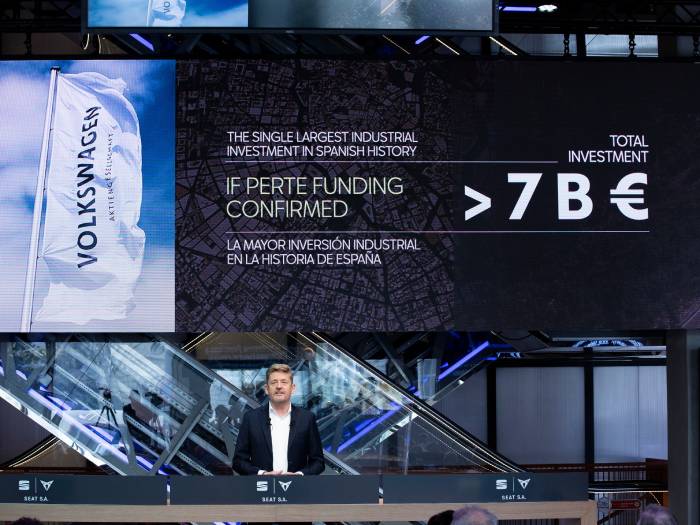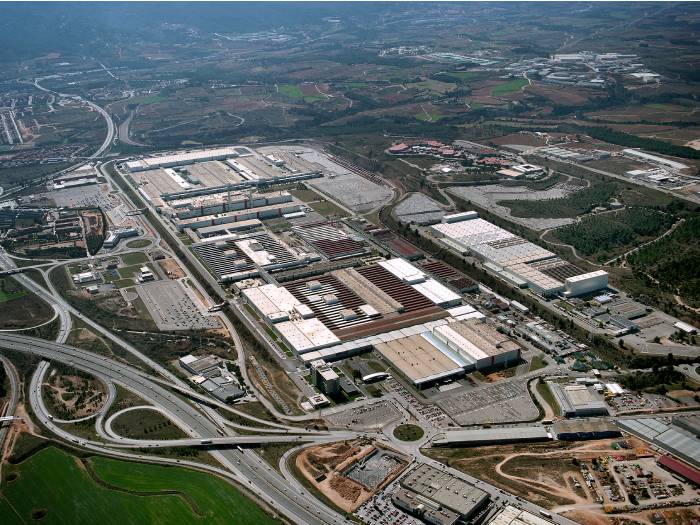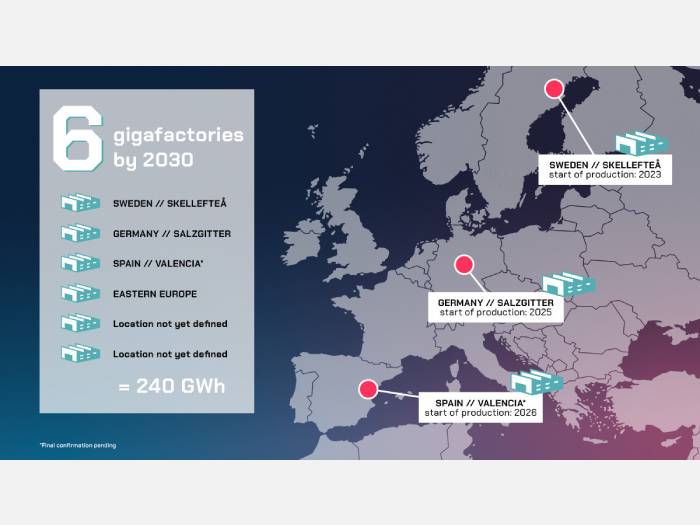Valencia is the location for a new Volkswagen Group's gigafactory
Turning Spain into a European E-Mobility Hub is the aim of the Volkswagen Group, which is ready to invest more than €7 billion together with external suppliers. The plans include the construction of a gigafactory for the production of battery cells near Valencia, which would lead to the creation of more than 3,000 jobs. SEAT and the Volkswagen Group will formally apply to the PERTE program.
Electrifying Spain, creating a European hub for the electric car, starting the production of battery cells and building a full, sustainable e-mobility ecosystem. With these goals in mind, the Volkswagen Group and SEAT have announced their intention to formally apply to the PERTE program (an acronym for Strategic Projects for Economic Recovery and Transformation, in English) launched by the Spanish Government.
Focus on the entire emobility value chain

The programme Future: Fast Forward would involve a total investment of more than €7 billion, with the support of external suppliers, along the entire e-mobility value chain.
The choice of Valencia as the location for a new gigafactory for the production of battery cells fits into this context. Plans and investments are still subject to final approvals, primarily linked to the Iberian government's decision on the application to the PERTE program.
Gigafactory Valencia
The Valencia gigafactory would be the second built by the Volkswagen Group, after Salzgitter - the first outside Germany. A standardised factory to produce the Group's unified cell, powered by renewable energy so as to enable a sustainable battery production. "It will create a strong pulling effect in the whole battery value chain, in Spain and beyond," said Thomas Schmall, Member of the Volkswagen AG Board of Management responsible for Technology and Chairman of the SEAT S.A. Board of Directors.
The location selection process was very complex; Valencia emerged as the best option based on more than 100 criteria ranging from the availability of a qualified workforce to public support, good logistics and to the availability of green energy. The Volkswagen Group's target is an annual production capacity of 40 GWh; plans include the creation of more than 3,000 new jobs. The timeline is tight: in order to start production in 2026, the construction work for the gigafactory should begin by the end of the year.
Flexibility and competitiveness
"Transforming an entire industry is a huge challenge," continued Schmall. "To be competitive in the world of e-mobility, we now have to raise productivity at the Spanish sites. And we need to qualify many of our people for new tasks, including battery development and production. This calls for a lot of flexibility by everyone and a possible change of jobs. But what is important is that the overall effect on employment will be positive, despite the faster assembly times in the electric car manufacturing. If we do it right and get the right support by the Spanish government, we will be able to create additional jobs in this transition for Spain”.
Large investments

"This project is highly important - for the Volkswagen Group, for Spain and for the whole of Europe. It’s our ambition to electrify Spain and we are willing to invest more than seven billion euros, together with external suppliers, in the conversion of our Martorell and Pamplona plants and in localizing the battery value chain in Valencia," added Thomas Schmall.
"Future: Fast Forward has the potential to transform the Spanish automotive industry and democratise electric mobility across Europe," said Wayne Griffith, President of SEAT. The more than €7 billion allocated by the Volkswagen Group and SEAT would represent the largest industrial investment in the history of Spain.
Group plans for gigafactories

The Volkswagen Group's strategy is to start operations, together with partners, in six gigafactories in Europe with a total annual capacity of 240 GWh. Cells for the premium class will be produced by Northvolt in Skellefteå, Sweden.
To speed up the roll-out of all further cell factories coming up for Europe, Volkswagen has founded a European corporation dedicated to the battery business - from cell development to production - with the possibility of integrating partners or investors. The Salzgitter gigafactory, where production is scheduled to start in 2025, will be the hub for all activities and serve as a blueprint for all following sites.
VGI | Responsible OU: VP | Creation date: article date | Class 9.1
